CHOOSE ASPHALT - HERES WHY!!
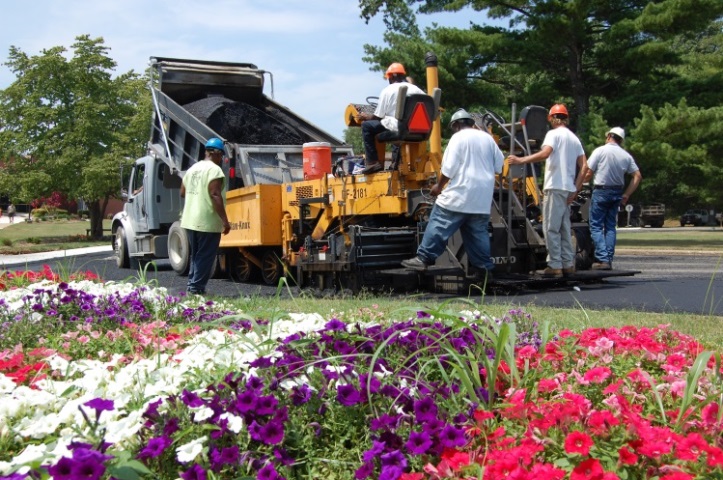 There are more than 2.2 million miles of paved roads in the United States; over 94 percent of them are surfaced with asphalt. Asphalt pavements are and continue to be America’s pavement of choice. And it’s not just here in the U.S., over 90% of Canadian roads are asphalt, and more than 96% of Mexico’s. The figures for every continent in the world are similar.
There are more than 2.2 million miles of paved roads in the United States; over 94 percent of them are surfaced with asphalt. Asphalt pavements are and continue to be America’s pavement of choice. And it’s not just here in the U.S., over 90% of Canadian roads are asphalt, and more than 96% of Mexico’s. The figures for every continent in the world are similar.
Here in West Virginia, over 95% of the State's Interstate and Primary roads are surfaced with asphalt.
Why? Why is asphalt the overwhelming pavement of choice for highways, roads, streets and parking facilities in virtually every country in the world?
It’s rather simple; really. Highway engineers and road designers around the globe know asphalt is the most versatile paving material in the world. They can rely on asphalt to provide the most cost-effective solution, high-quality, long-lasting, safe and comfortable ride for most paving projects. Here are just a few of the attributes of asphalt that make it World Class.
Asphalt is a superior, sustainable paving material for constructing pavements and can be used for many applications including highways, airport runways, parking lots and driveways. Asphalt ultimately speeds construction, is environmentally friendly, provides a smooth, quiet ride and more. Check out these reasons to use Asphalt.
 Asphalt is quicker and easier to maintain. Everyone hates orange barrels and “lane closure ahead” signs because they usually mean traffic congestion and delay. That’s why most asphalt paving is done at night, quickly and with minimal impact on the traveling public. An entire road can literally be removed and replaced while you sleep and you are able to travel to work the next day with all lanes open, riding on new pavement.
Asphalt is quicker and easier to maintain. Everyone hates orange barrels and “lane closure ahead” signs because they usually mean traffic congestion and delay. That’s why most asphalt paving is done at night, quickly and with minimal impact on the traveling public. An entire road can literally be removed and replaced while you sleep and you are able to travel to work the next day with all lanes open, riding on new pavement.
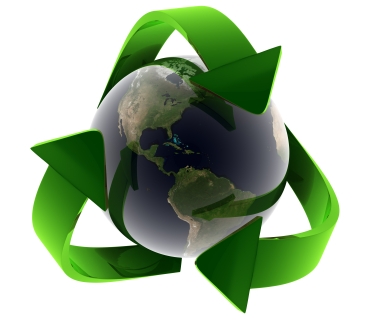 Asphalt pavements are THE most recycled material in the world. Recycled Asphalt Pavement (RAP) has been used widely for more than 30 years and for the tenth year in a row RAP is the most recycled product in America. Every year nearly 100 million tons of RAP is recycled back into new asphalt pavement in the U.S. All the asphalt binder and aggregate are recycled back into the mix as asphalt binder and aggregate.
Asphalt pavements are THE most recycled material in the world. Recycled Asphalt Pavement (RAP) has been used widely for more than 30 years and for the tenth year in a row RAP is the most recycled product in America. Every year nearly 100 million tons of RAP is recycled back into new asphalt pavement in the U.S. All the asphalt binder and aggregate are recycled back into the mix as asphalt binder and aggregate.
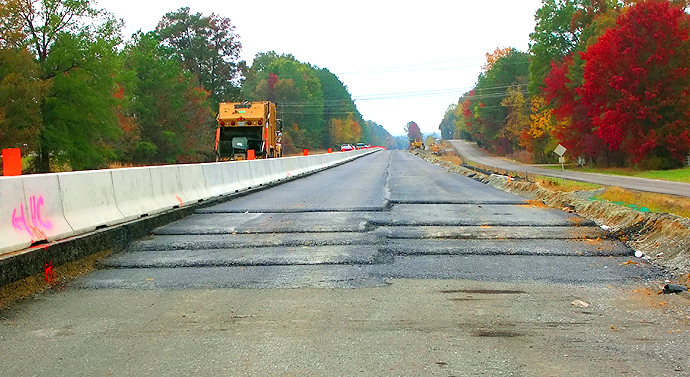 Asphalt is the choice for versatility. From ¾” to 12” or more, the versatility of Asphalt pavements permits the construction and thickness of a pavement structure that will meet the needs of any pavement project. Each layer bonds to the underlying asphalt layer(s) forming one homogeneous pavement structure. Stage construction allows strengthening of pavement at a future date by adding thickness/structure as the need arises. Each successive layer substantially increases the load-carrying capacity and pavement fatigue life.
Asphalt is the choice for versatility. From ¾” to 12” or more, the versatility of Asphalt pavements permits the construction and thickness of a pavement structure that will meet the needs of any pavement project. Each layer bonds to the underlying asphalt layer(s) forming one homogeneous pavement structure. Stage construction allows strengthening of pavement at a future date by adding thickness/structure as the need arises. Each successive layer substantially increases the load-carrying capacity and pavement fatigue life.
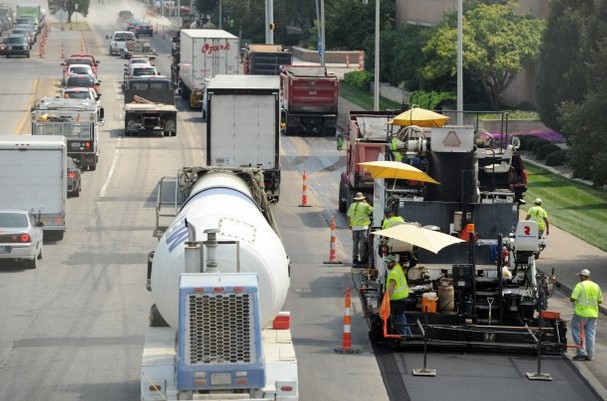 Asphalt’s constructability is a win-win. The term “constructability” infers the advantages afforded a paving material to facilitate design simplicity, rapid construction, maintenance of traffic, and maximization of safety to the traveling public and construction workers alike. Asphalt pavements are the most constructible pavements as demonstrated through their preferred use in design-build contracting and its use as the primary pavement type for rehabilitating urban roadways.
Asphalt’s constructability is a win-win. The term “constructability” infers the advantages afforded a paving material to facilitate design simplicity, rapid construction, maintenance of traffic, and maximization of safety to the traveling public and construction workers alike. Asphalt pavements are the most constructible pavements as demonstrated through their preferred use in design-build contracting and its use as the primary pavement type for rehabilitating urban roadways.
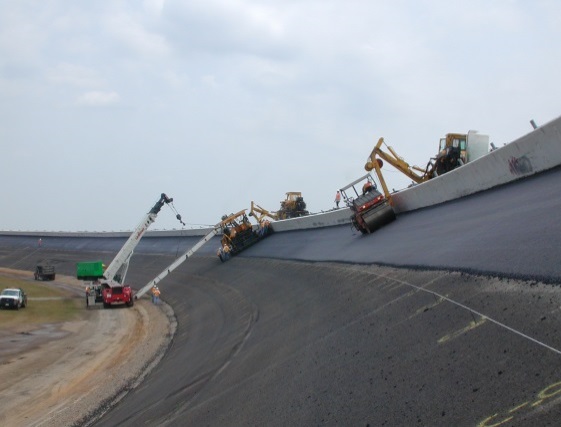 Smoothness Matters! No thump, thump, thump here. Asphalt pavements provide the highest level of smoothness when compared to all other pavement types, both initially and over the life of the pavement. Smoothness measurements for asphalt pavements are consistently lower (smoother) on the International Roughness Index (IRI) scale than any other pavement type. Asphalt pavements are built smooth, not ground to get the roughness out!
Smoothness Matters! No thump, thump, thump here. Asphalt pavements provide the highest level of smoothness when compared to all other pavement types, both initially and over the life of the pavement. Smoothness measurements for asphalt pavements are consistently lower (smoother) on the International Roughness Index (IRI) scale than any other pavement type. Asphalt pavements are built smooth, not ground to get the roughness out!
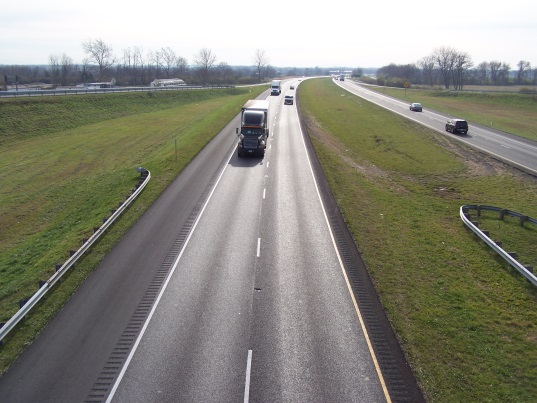 Asphalt First in Sustainability. Every day is Earth Day with Asphalt. According to figures released by FHWA, more than 99 percent of asphalt pavement reclaimed from roads was collected for use in new pavements. Over 3.7 million tons of liquid asphalt binder was saved through the use of Recycled Asphalt Pavement (RAP) and Recycled Asphalt Shingles (RAS) during 2011. There were 69 million tons of environmentally friendly Warm Mix Asphalt (WMA) produced in the U.S. in 2011, up 67% from 2010 and over 300% since 2009. Crumb rubber derived from scrap tires is also being successfully used to enhance asphalt paving mixtures, increasing the life of asphalt pavements and creating a beneficial use from an otherwise waste product.
Asphalt First in Sustainability. Every day is Earth Day with Asphalt. According to figures released by FHWA, more than 99 percent of asphalt pavement reclaimed from roads was collected for use in new pavements. Over 3.7 million tons of liquid asphalt binder was saved through the use of Recycled Asphalt Pavement (RAP) and Recycled Asphalt Shingles (RAS) during 2011. There were 69 million tons of environmentally friendly Warm Mix Asphalt (WMA) produced in the U.S. in 2011, up 67% from 2010 and over 300% since 2009. Crumb rubber derived from scrap tires is also being successfully used to enhance asphalt paving mixtures, increasing the life of asphalt pavements and creating a beneficial use from an otherwise waste product.
